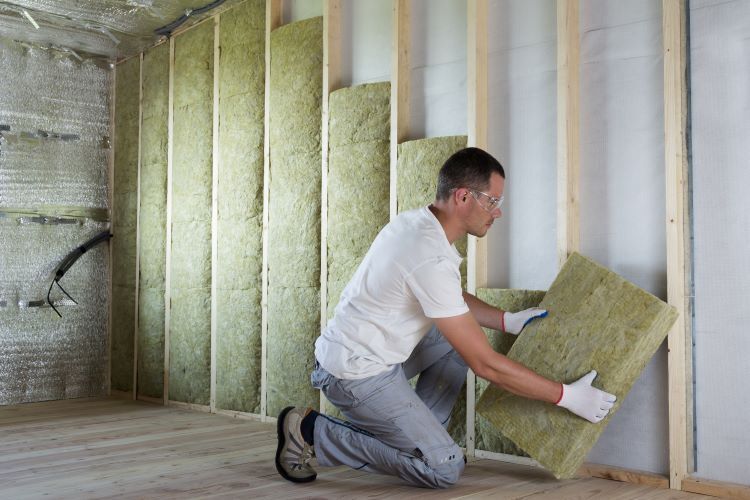The Role of Insulation in Preventing Basement Moisture Issues

When it comes to basement renovations, one of the most critical factors to consider is moisture control. Moisture issues in basements can lead to a host of problems, including mold growth, structural damage, and poor indoor air quality. At Basement Renovations London, we understand the importance of keeping your basement dry and comfortable. Insulation plays a key role in preventing basement moisture issues, and here’s how.
Understanding Basement Moisture Issues
Basements are particularly prone to moisture problems due to their location below ground level. Water can seep into the basement through cracks in the foundation, walls, and floor. Additionally, high humidity levels can lead to condensation on cold surfaces. Common sources of moisture in basements include:
- Groundwater: Water from the soil can enter the basement through foundation cracks.
- Rainwater: Poor drainage systems can direct rainwater towards the foundation.
- Condensation: Warm, moist air can condense on cooler basement walls and floors.
How Insulation Helps Prevent Moisture Issues
Proper insulation acts as a barrier that helps control the movement of moisture, thereby reducing the risk of dampness and its associated problems. Here are several ways insulation contributes to a moisture-free basement:
- Thermal Barrier: Insulation helps maintain a consistent temperature within the basement. By keeping the basement walls and floors warmer, it reduces the likelihood of condensation, which occurs when warm, humid air comes into contact with cooler surfaces.
- Vapor Barrier: Certain types of insulation, such as rigid foam and spray foam, have built-in vapor barriers. These barriers prevent moisture from the soil from entering the basement, keeping the space dry.
- Air Sealing: Insulation can help seal gaps and cracks in the basement structure, preventing humid air from infiltrating the basement and causing condensation.
- Improved Drainage: Insulation can be part of a comprehensive moisture control system that includes proper drainage around the foundation. By keeping the basement warm and dry, insulation helps reduce the overall moisture load on the drainage system.
Types of Insulation for Moisture Control
Choosing the right type of insulation is crucial for effectively managing moisture in your basement. Here are some insulation options that are particularly effective:
- Spray Foam Insulation: This type of insulation provides excellent thermal resistance and creates an airtight seal. It expands to fill gaps and cracks, providing a strong barrier against moisture.
- Rigid Foam Insulation: Rigid foam boards, such as polystyrene or polyisocyanurate, offer high R-values and are resistant to water absorption. They can be installed directly against basement walls to provide both thermal insulation and a moisture barrier.
- Fiberglass Insulation with Vapor Barrier: Fiberglass batts or rolls can be installed in basement walls and ceilings. When used with a vapor barrier, they help control moisture infiltration while providing thermal insulation.
- Insulated Concrete Forms (ICFs): ICFs are hollow blocks or panels made of rigid foam that are stacked to form the shape of the walls, and then filled with concrete. They offer excellent insulation and moisture resistance.
Best Practices for Insulating Your Basement
To ensure effective moisture control, it’s essential to follow best practices when insulating your basement:
- Address Existing Moisture Issues: Before installing insulation, make sure to fix any existing moisture problems. This includes sealing foundation cracks, improving drainage, and addressing any leaks.
- Install a Vapor Barrier: In areas prone to high moisture levels, consider installing a separate vapor barrier before adding insulation. This extra layer of protection can help prevent moisture from seeping into the insulation and the basement.
- Seal Gaps and Cracks: Use spray foam or caulk to seal any gaps and cracks in the basement walls, floors, and around windows and doors. This helps prevent humid air from entering the basement.
- Maintain Proper Ventilation: Ensure your basement has adequate ventilation to prevent moisture buildup. Use dehumidifiers if necessary to keep humidity levels in check.
Conclusion: The Essential Role of Insulation in Basement Moisture Control
Proper insulation is a critical component of moisture control in basements. It helps maintain a consistent temperature, reduces condensation, and acts as a barrier against moisture infiltration. By choosing the right insulation and following best practices, you can keep your basement dry, comfortable, and free from moisture-related problems.
At Basement Renovations London, we specialize in providing comprehensive insulation solutions tailored to the unique needs of London, Ontario homeowners. Contact us today to learn more about how we can help you achieve a moisture-free basement with the right insulation.
You might also like




